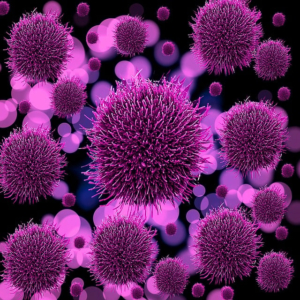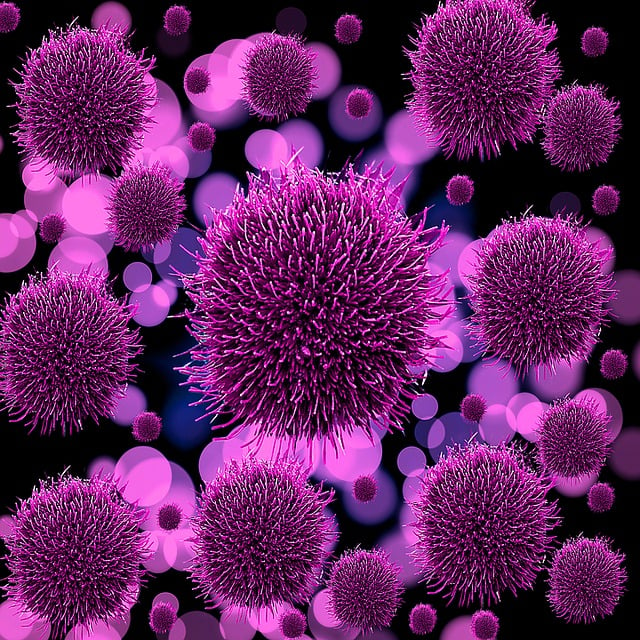TAKE CARE OF YOUR MICROBIOME
TAKE CARE OF YOUR MICROBIOME AND IT WILL TAKE CARE OF YOU

Your microbiome is all the micro-organisms that live within your digestive tract, on your skin and in your bloodstream. They include bacteria, fungi, viruses, yeast and parasites that inhabit various parts of your body. Your large intestine alone has 40 trillion bacteria which contains more that 150 times the genetic material of you own body’s cells. When you are healthy, these micro-organisms work together with your body’s own cells to maintain the health of all your organs and harmony between various systems, including your neurological, respiratory, circulatory, hormonal and immune systems. They manufacture important enzymes, vitamins and other chemicals and hormones important to the body and the brain.
The ancient Egyptians believed that the condition of the gut was the foundation of health. It may be compared to the condition of the soil that provides the nutrients for all plants, trees and fungi. Most of these nutrients are formed by the action of micro-organisms in the soil acting on minerals and vegetation in the soil. Without these micro-organisms the soil becomes sterile and infertile. Similarly, if the gut loses its diversity of micro-organisms it can no longer provide the nutrients the body needs.
Two factors are important for creating a healthy microbiome:
Firstly, there needs to be a wide diversity and healthy balance between ‘health giving’ bacteria and ‘pathological’ bacteria. This balance depends on the nature of the food we eat, and the effect of toxins. Beneficial bacteria depend mainly on a healthy vegetable diet containing a lot of insoluble fibre. Insoluble fibre from a diverse diet including many different vegetables of different colours act as powerful probiotics. These vegetables also provide polyphenols, which are the bright colours in like blueberries, or raspberries, or black rice, or red rice. There is no fibre in animal products. There’s no fibre in bottled oils. There is no fibre in sugars. And there’s virtually no fibre in white flours. Fibre is found in whole plant foods, especially in fruits and vegetables, nuts and seeds, legumes and whole grains. And, you’re getting a mix of different kinds of fibre in every one of them.
If we are not eating these things, we are not feeding the beneficial anti-inflammatory species in our guts. Probiotics can also be taken orally, although most of these are destroyed by the strong hydrochloric acid in the stomach. It is possible to take certain products that contain bacteria that can resist the strong acid in the stomach and are protected by a hardened shell. Studies show these probiotics arrives 100% alive in your gut and ready to go to work.
Just Thrive Probiotic’s spore-based formula contain the following bacteria that encourage the growth of healthy bacteria and also help to heal a ‘leaky gut’ (see paragraph below).
Bacillus subtilis HU58TM
Bacillus indicus HU36TM
Bacillus clausii
Bacillus coagulans
The second important factor in relation to a healthy gut is a problem that is very common in modern society known as a leaky gut. Leaky gut is caused when the thin layer of cells that line the gut become stretched apart so they become permeable to substances in the gut that are not supposed to enter the bloodstream. The gut barrier is made up of cells that form tight junctions. And those cells get extra protection on the inside from a thick layer of mucus that shields them against attack. When everything is working the right way, the gut barrier allows bloodstream access to only a select few beneficial particles. That’s how nutrients pass through your gut and into your bloodstream. But sometimes invaders like infections, toxins or certain medications damage the mucus layer and break those tight junctions, making micro tears in the barrier, which results in a leaky gut. And when you have a leaky gut, unwanted substances like pathogens, toxins, and undigested food particles can sneak through into the bloodstream, where they absolutely don’t belong. Once those particles enter your circulation, they can cause all sorts of damage anywhere in your body.
A whole range of conditions can cause a leaky gut including:
Long term excessive stress/trauma
A number of medications including NSAIDS such as ibuprofen, antibiotics and steroids.
Exposure to toxins from environmental pollutants, heavy metals, pesticides and food additives
Excessive alcohol and sugar, especially fructose
Processed foods and food additives
Mould toxicity
Food poisoning and candida overgrowth
Intestinal parasites
Lyme and co-infections
Infections such as salmonella, norovirus and giardiasis
Leaky gut can cause inflammation in any organ of the body and is linked to many chronic illnesses including mental illnesses such as depression, anxiety and possibly Alzheimer’s and Parkinson disorders. The gut contains millions of neurons and is in constant communication with the brain via the nervous system, the gut brain axis and the vagus nerve. Other conditions of leaky gut include:
Gastrointestinal (GI) issues, including bloating, gas, diarrhoea, and irritable bowel syndrome (IBS)
Any autoimmune disease, including rheumatoid arthritis, lupus, celiac disease, and psoriasis
Allergies and asthma
Inflammatory bowel diseases (IBDs), such as Crohn’s disease and ulcerative colitis Blood sugar issues, including type 1 and type 2 diabetes Eczema, acne, and other skin conditions
Insomnia and other sleep disorders
Obesity and difficulty losing weight
Other tips for healing a leaky gut
Follow the guidance given above for creating a healthy gut microbiome:
In addition you should try and reduce excessive stress and endeavour to resolve present or previous trauma.
Ensure you have regular and sufficient sleep. There’s a strong relationship between the composition of your gut bacteria and sleep quality:
Exercise regularly and make sure you are breathing fresh air regularly, preferably early in the morning and evening to help eliminate toxins.,
Consume fermented foods regularly such as pickles, yoghurt, sauerkraut, kimchi and kombucha which provide healthy bacteria and fibre.
Maintain your levels of Vitamin D and consider supplements such as L-glutamine, which may heal the intestinal lining.
Recent research has shown that aloe vera helps to decrease the lactulose/ mannitol ratio, which is a marker of intestinal permeability and essential for healing the gut! Aloe vera also helps heal the gut lining as it’s super high in fiber and triggers the production of short chain fatty acids (SCFAs). Only take small amounts at a time.
